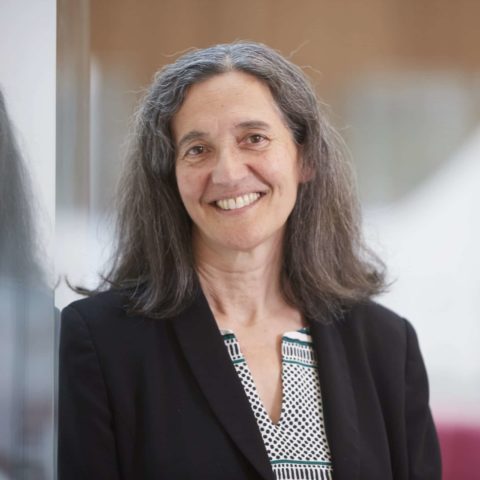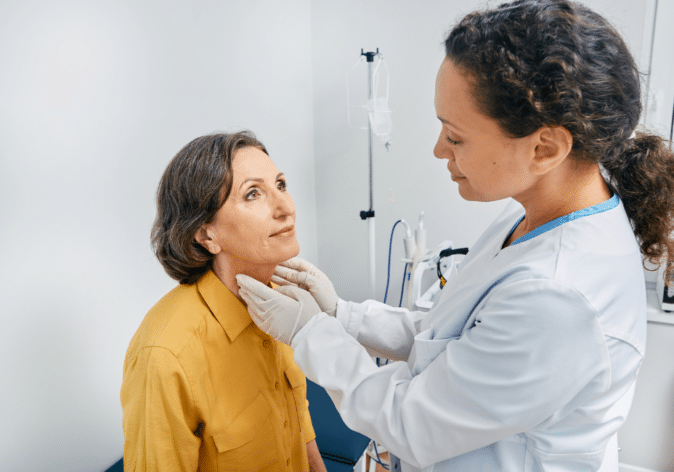What Is Personalised Medicine?
Personalised medicine means treatment that is designed to be tailored to the unique characteristics of the person and the unique characteristics of their particular condition.
Each person would have particular features, for example; their age, their physiology, their genetics and then their disease would also have its particular characteristics. Illnesses and diseases manifest differently in different people and have different characteristics.
Personalised medicine aims to tailor the therapy for a condition to the specific unique characteristics for the person.
The way we treat breast cancer has changed. Previously, breast cancer was really considered to be one condition, and there was a standard way to manage it. For example, all women with node-positive breast cancer had a particular treatment recommended.
Nowadays, we are looking much more at the specific characteristics of the person who has the breast cancer and the specific characteristics of their breast tumour before we decide how they should be approached from a treatment perspective. So, we would categorise women according to their age, and their menopausal status and their treatment would be personalised according to those factors.
We would also be looking at their health status, their other medical conditions or things they might be at risk for, we would be looking at their personal and family medical history. We would be having a look at the specific characteristics of their tumour.
Previously, breast cancer was more or less considered to be one type of cancer, but now we know there are specific sub-groups of tumours that have quite different behaviours, so we’re dividing breast cancers by hormone receptors – so oestrogen or progesterone receptors, the presence or absence of those.
We’re also looking at how much of the cancer actually expresses the hormone receptor because not everybody with oestrogen-receptor positive breast cancer will have exactly the same type of cancer.
Some oestrogen receptor-positive breast cancers will have a lot of oestrogen receptors; some will only have a few. We’ll also be looking at the HER2 status of a tumour to see whether a tumour is HER2-positive or HER2-negative.
Then we’ll be looking at other characteristics that might be involved; the grade of the tumour, other features to do with the extent of lymph node involvement or the absence of lymph node involvement, and we’re going to be trying to craft a specific program for that woman that is based on a number of features we’ve looked at.
Going forward there are going to be more and more specific pathology tests that may go into even more detail for tumours so that personalising the treatment may be possible above and beyond what I’ve talked about.
Listen to the podcast
Professor Prue Francis explains how personalised medicine is changing the way we treat breast cancer in this episode of the Breast Cancer Trials Podcast.
Clinical Trials Which Use Personalised Medicine
Personalised medicine has really changed the nature of the breast cancer trials that we do. When I was first involved in trials with the trials group, there were large trials that enrolled many thousands of women who had quite differing characteristics of their cancer – women with oestrogen receptor-positive cancers were mixed together with women who were oestrogen receptor-negative, or sometimes we didn’t even know the oestrogen receptor status in the earlier years, we didn’t know the HER2 status before that was known to be important, and sometimes women of different menopausal status were all mixed together.
Nowadays we’re increasingly looking at niche trials, and this makes the research more useful because ultimately we can answer questions better if we have a trial that’s tailored to women with a particular type of cancer. It also makes it more challenging because for each individual trial, not every woman would be eligible for it. So it’s trying to find the patients – not always women – that would be suited for a particular trial, and it’s more niche trials rather than across-the-board trials.
An example of personalised medicine in relation to breast cancer trials would be the OlympiA trial. The OlympiA trial is testing whether the addition of an oral tablet after other therapies have been completed would be helpful in reducing breast cancer recurrence; however, the patients that would be suitable for the OlympiA trial would be those who had breast cancer and those who also carry a BRCA gene mutation. So it’s a particularly niche trial because the drug that is being tested, the tablet, is something that is likely to be helpful potentially in women that carry this mutation but is not likely to be helpful in women generally with breast cancer. So, it’s a particular trial that is personalised medicine.
We’re also due to embark on a trial later this year called EXPERT. EXPERT is a trial where routinely women who’ve had surgery where they’ve conserved the breast – it’s standard for those women to be recommended to receive radiation – and in the EXPERT trial we’re looking for women who are 50 years of age or older and we are going to be studying the particular characteristics of their tumour by a multi-gene assay.
So depending on the exact genetic makeup of their tumour we will decide whether women would be suitable for an approach in this trial where women might be randomised to not receive radiation or to receive radiation. So, again, not all women 50 years of age or older could participate in the trial, but women whose particular characteristics of their tumour appear suitable by a personalised test will be the women who’ll be eligible to participate.
I think the future of personalised medicine is to try to tailor treatments appropriately to avoid over-treating people and to avoid under-treating people. I think at the moment we are getting quite good outcomes in breast cancer but there probably are people who are being over-treated because we haven’t yet worked out all the answers to personalised treatment, and there are some who are being under-treated in the sense that we know some women still have a recurrence of their breast cancer, so trying to continue to tailor our trials and our therapies to try to get that balance perfect is a goal of personalised medicine in terms of breast cancer trials.
Support Us
Help us to change lives through breast cancer clinical trials research




